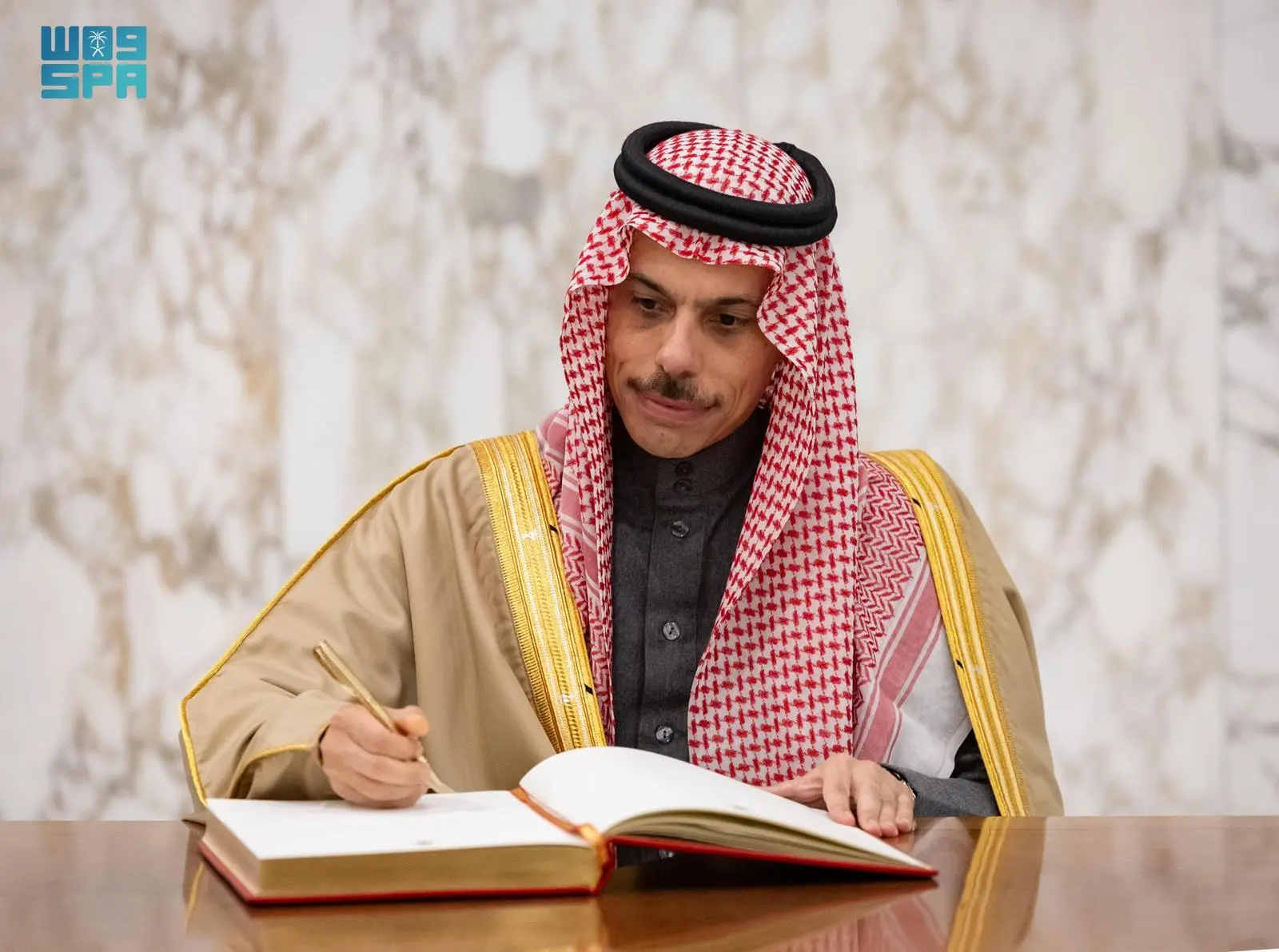Saudi Minister of Foreign Affairs Prince Faisal bin Farhan bin Abdullah meets with Lebanon’s newly-elected President Joseph Aoun and the leader of the new Syrian administration, Ahmad al-Sharaa, on a diplomatic tour.
Prince Faisal bin Farhan made his first visit to Lebanon in 15 years marking a swift turnaround of political relationships following Israel’s significant degradation of Hezballah leadership over the past months. The candidacy of Lebanon’s newly-elected President Joseph Aoun was supported by Saudi Arabia and the United States and Aoun has been complimentary of Saudi Arabia’s historical role in Lebanon as well as stating that his first foreign visit will be to Saudi Arabia.
During his visit, Prince Faisal commented that, “I expressed to him (Aoun) that we believe in the importance of the reforms he presented so that Lebanon can overcome its crises. The kingdom is looking at Lebanon’s future with optimism under the reformist approach that came in the president’s speech after his inauguration. These reforms will boost the confidence of Lebanon’s partners and open space for the country to regain its rightful place in the Arab and international spheres.”
Among the reforms Aoun has proposed is that the Lebanese state have the exclusive right to carry arms. A response to Arab states concern with Hezballah’s extensive military arsenal.
Prince Faisal also affirmed support for the US-brokered ceasefire that ended Israel’s war on Lebanon and demanded the “full withdrawal of Israeli occupation forces” from Lebanese territory.
Prince Faisal bin Farhan had not been to Syria since April 2023 when he meet with now ousted President Bashar Al-Assad. The leader of the new Syrian administration, Ahmad al-Sharaa, was recently in Riyadh where he made his first foreign visit for meetings with Crown Prince Mohammed Bin Salman, Prince Faisal and other key Saudi figures.
Al-Sharaa also chose Saudi Arabia’s Al-Arabiya for his first televised interview with an Arab outlet. In that interview, Al-Sharaa commented that, “Saudi Arabia has a major role in Syria’s future, and I take pride in everything it has done for us.” Adding that he spent his early childhood in Riyadh.
Al-Sharaa is Syria’s de facto leader until March 1, when a political dialogue among Syria’s different factions is planned.
Saudi Arabia has established an air and land pipeline to Syria providing humanitarian aid, including medical, food, and shelter supplies.
Saudi Arabia is supportive of stability in Syria and is interested in seeing Syria distance itself from Iranian influence.
In Enab Baladi, political analyst, Ahmad Mazhar Sado commented that:
“Choosing Saudi Arabia as the gateway for Syria’s foreign relations demonstrates the new Syrian administration’s significant interest in the regional and Arab role of the kingdom… Saudi Arabia could play a significant role in reinstating Syria to its natural role within the Arab League and also in restoring its important regional role away from Iranian hegemony.” Furthermore, “The kingdom also wants to establish good relations between Damascus and Riyadh, devoid of the corruption and disruption that previous regime tools and Iranian militias implemented.”
Writing for Enab Baladi, Hani Karazi notes that, “Saudi Arabia is among the Gulf countries most severely affected by the influx of captagon drugs into it and other Gulf nations from Syria through Jordan. Its previous diplomatic attempts with the ousted Assad regime to halt the drug flow have failed, as evidenced by the discoveries of drug manufacturing facilities and warehouses within military units and security branches following al-Assad’s fall and his escape to Moscow.”
To read more, click here, here, here, here and here.









